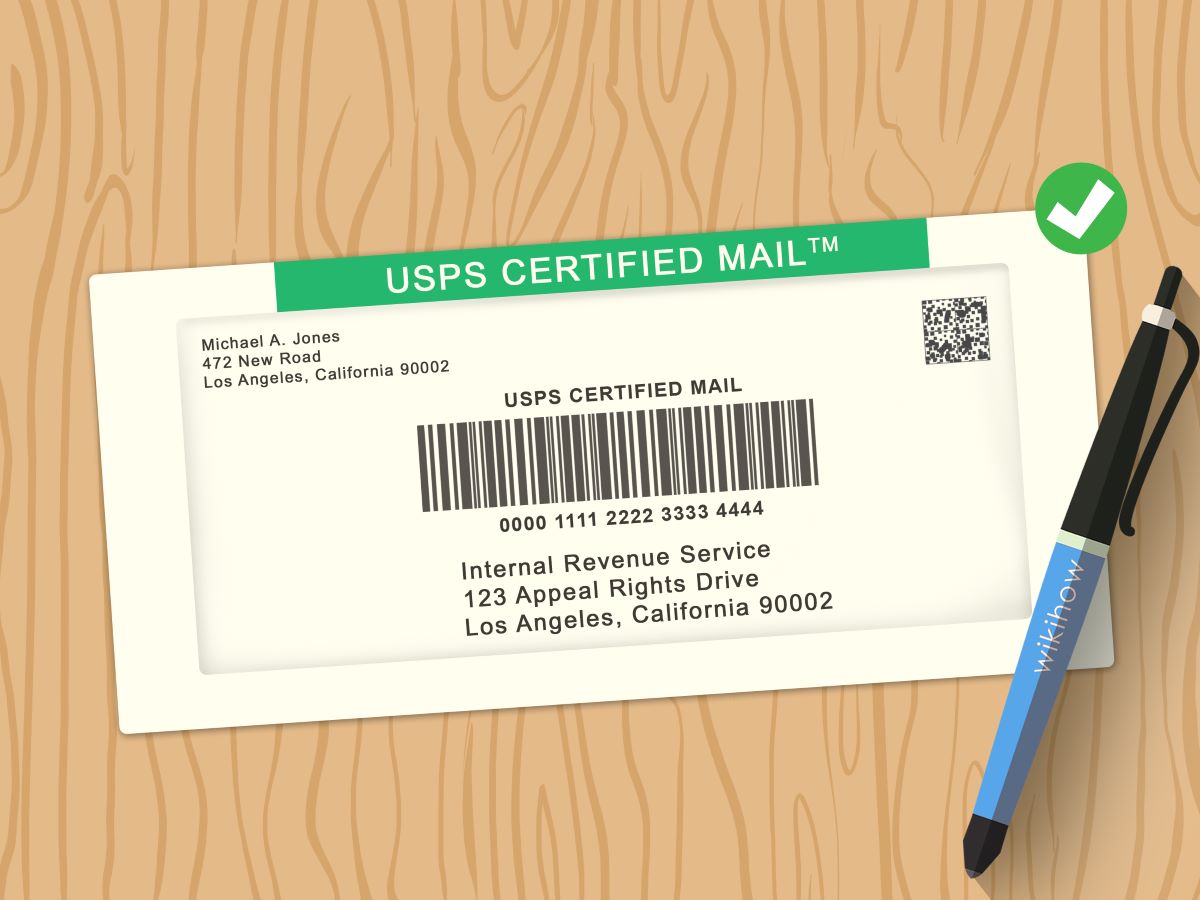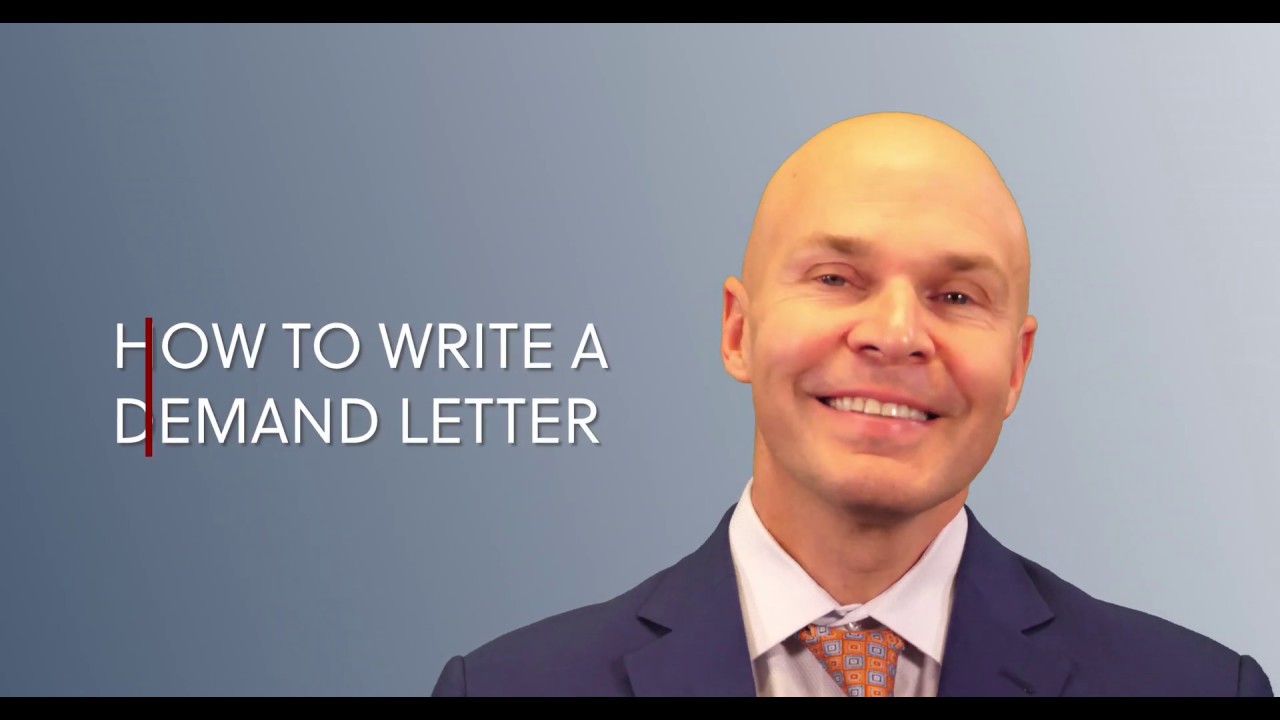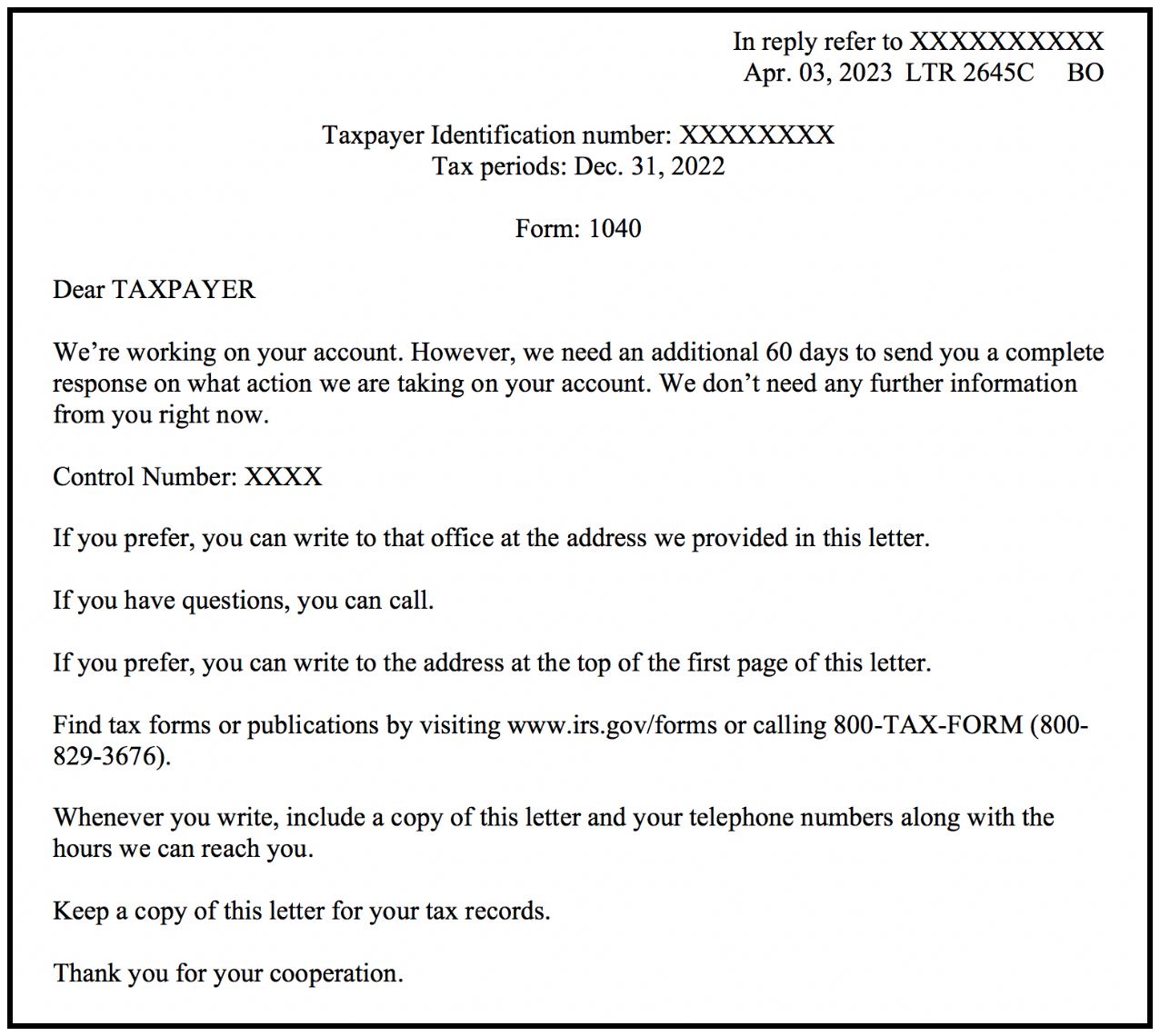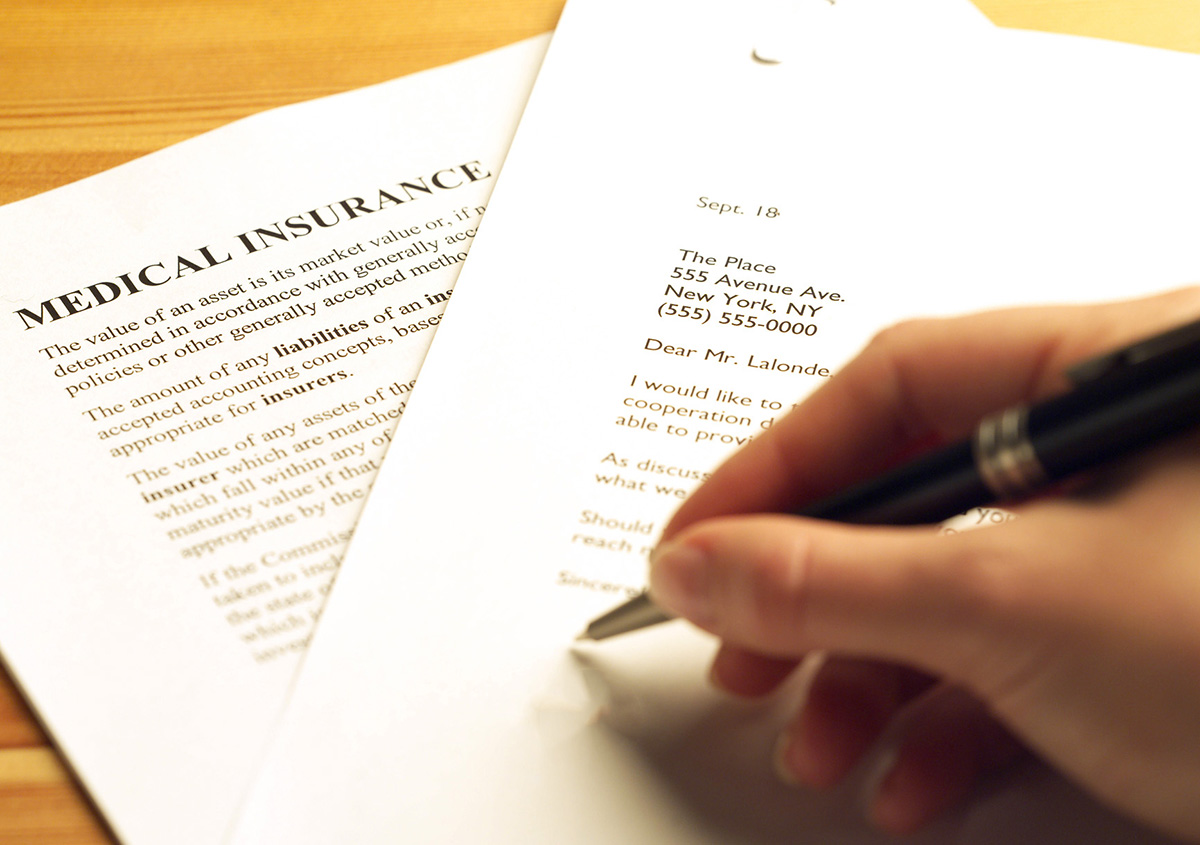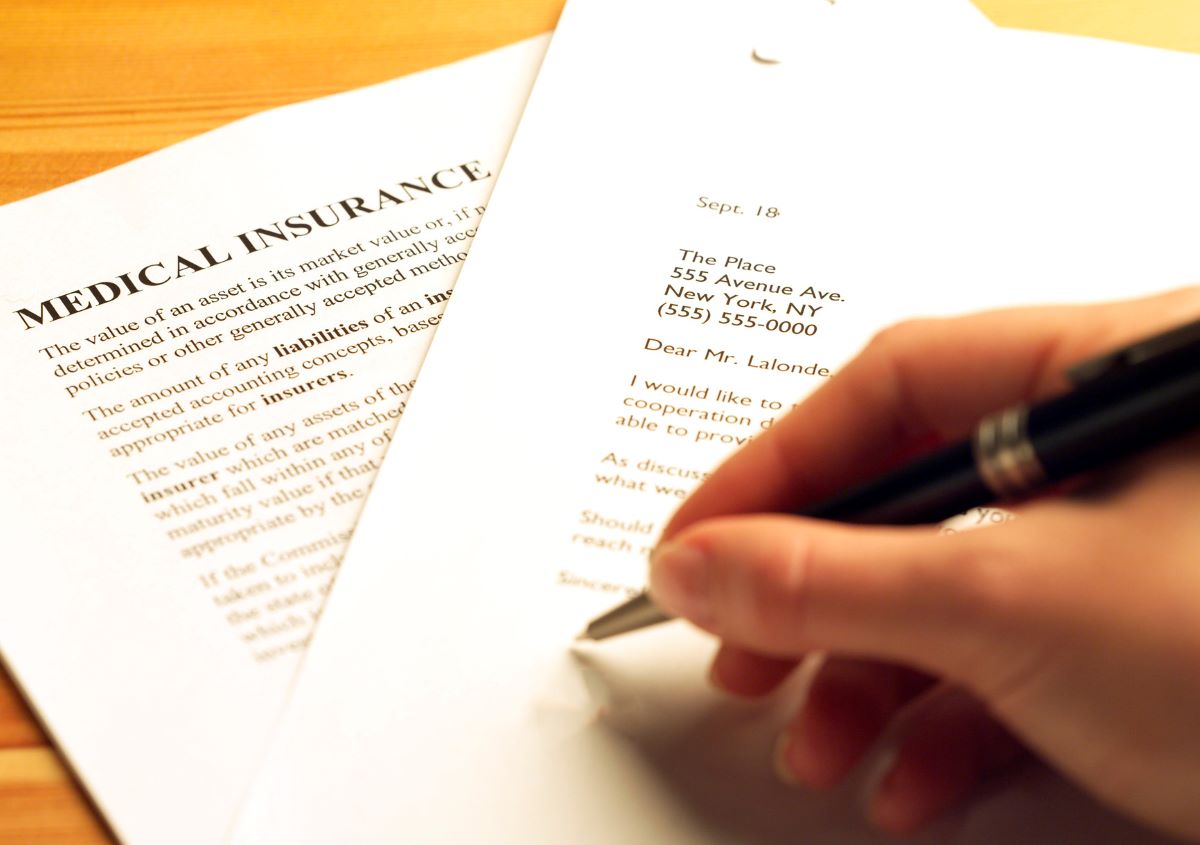Home>Finance>How To Write A Cover Letter For An Accounting Job


Finance
How To Write A Cover Letter For An Accounting Job
Published: October 8, 2023
Learn how to write an impactful cover letter for an accounting job in the finance industry, and increase your chances of landing your dream role.
(Many of the links in this article redirect to a specific reviewed product. Your purchase of these products through affiliate links helps to generate commission for LiveWell, at no extra cost. Learn more)
Table of Contents
- Introduction
- Step 1: Understand the Purpose of a Cover Letter
- Step 2: Research the Company and Job Description
- Step 3: Format Your Cover Letter Correctly
- Step 4: Include a Professional Salutation and Opening Paragraph
- Step 5: Highlight Your Relevant Skills and Experiences
- Step 6: Provide Examples of Achievements and Results
- Step 7: Explain Your Interest in the Accounting Industry
- Step 8: Convey Your Enthusiasm and Fit for the Role
- Step 9: End with a Strong Closing Paragraph
- Step 10: Edit and Proofread Your Cover Letter
- Conclusion
Introduction
A cover letter is a crucial component of the job application process, especially when applying for an accounting job. It serves as an introduction to your skills, experiences, and qualifications, allowing you to showcase why you are the ideal candidate for the position.
Writing an effective cover letter requires careful thought and consideration. It is your opportunity to make a strong first impression and stand out from other applicants. A well-crafted cover letter can demonstrate your attention to detail, communication skills, and passion for the accounting industry.
In this article, we will guide you through the process of writing a compelling cover letter for an accounting job. Whether you are a recent graduate or an experienced professional looking for a new opportunity, these tips will help you create a cover letter that highlights your strengths and increases your chances of securing an interview.
By following these steps, you will learn how to tailor your cover letter to the specific job requirements, showcase your relevant skills and experiences, and convey your enthusiasm for the accounting industry.
Let’s dive in and explore the key steps to write a cover letter that will impress hiring managers and increase your chances of landing your dream accounting job.
Step 1: Understand the Purpose of a Cover Letter
Before you start writing your cover letter, it’s essential to understand its purpose. A cover letter is your opportunity to introduce yourself, showcase your qualifications, and explain why you are a good fit for the accounting job you are applying for.
While your resume provides a summary of your skills and experiences, a cover letter allows you to go into more detail and personalize your application. It should complement your resume by highlighting specific achievements and explaining how your background aligns with the requirements of the job.
Additionally, a cover letter allows you to demonstrate your written communication skills and attention to detail. It shows your prospective employer that you have taken the time and effort to craft a tailored message specifically for their organization.
When writing your cover letter, keep in mind that it should be concise, clear, and well-structured. Avoid simply restating the information from your resume; instead, focus on providing additional context and showcasing your unique value proposition.
Here are a few key points to keep in mind when understanding the purpose of a cover letter:
- Introduce yourself: Use the opening paragraph to introduce yourself and provide a brief overview of your background and qualifications.
- Show your enthusiasm: Express your interest in the accounting job and the company. Demonstrate your enthusiasm for the role and convey why you are excited about the opportunity.
- Highlight your relevant skills: Emphasize the skills and experiences that make you a strong candidate for the position. Tailor your cover letter to match the requirements outlined in the job description.
- Personalize your application: Research the company and incorporate specific details about their values, mission, or recent accomplishments to demonstrate your genuine interest in working for them.
- Address any potential concerns: If there are any gaps or discrepancies in your resume, use the cover letter as an opportunity to address them proactively. Explain any career changes or transitions.
By understanding the purpose of a cover letter, you will be able to approach the writing process with clarity and focus. It will help you craft a compelling message that highlights your qualifications, showcases your enthusiasm, and convinces the hiring manager to consider you for the accounting job.
Step 2: Research the Company and Job Description
Before you start writing your cover letter, it’s crucial to thoroughly research the company and carefully review the job description. This step is essential to tailor your cover letter to the specific requirements and preferences of the organization.
Start by visiting the company’s website and exploring their mission, values, and culture. Understand their industry, products or services, and any recent news or achievements. This information will help you demonstrate your genuine interest in the company and align your qualifications with their needs.
Next, carefully review the job description. Pay close attention to the required skills, qualifications, and responsibilities outlined in the job posting. Make a note of the specific keywords and phrases used. These keywords will help you highlight your relevant experiences and skills in your cover letter, increasing your chances of getting noticed by the hiring manager.
When researching the company and job description, consider the following tips:
- Identify the key requirements: Highlight the skills, experiences, and qualifications mentioned in the job description. These are the areas you should focus on in your cover letter.
- Showcase your fit: Analyze how your background and experiences align with the company’s needs. Make connections between your skills and the requirements mentioned in the job posting.
- Highlight relevant accomplishments: Take note of any specific achievements, projects, or accomplishments that are relevant to the company or job. Consider how you can incorporate these examples into your cover letter to demonstrate your capabilities.
- Address specific company values: Look for information about the company’s mission, values, and culture. If you align with their values or have relevant experiences that showcase these values, be sure to mention them in your cover letter.
- Personalize your approach: Tailor your cover letter to the specific company and role. Show your passion, enthusiasm, and knowledge about the company and explain why you are excited to work for them.
By conducting thorough research, you will be able to create a more targeted and personalized cover letter. It will demonstrate your attention to detail, your understanding of the company’s needs, and your commitment to the role. Customizing your cover letter for each application will greatly increase your chances of standing out and getting called for an interview.
Step 3: Format Your Cover Letter Correctly
The formatting of your cover letter is as essential as the content itself. A well-formatted cover letter demonstrates your professionalism, attention to detail, and ability to effectively communicate your qualifications.
When formatting your cover letter, follow these guidelines:
- Use a professional font and size: Choose a standard font such as Arial, Calibri, or Times New Roman, and use a size between 10 and 12 points. This ensures readability and a clean appearance.
- Align your text: Use left alignment for a clean and organized look. Avoid using justified or centered alignment as it may make the text appear uneven or difficult to read.
- Include your contact information: Place your contact information at the top of your cover letter, including your full name, phone number, and email address. You can also include your LinkedIn profile URL if it’s relevant.
- Use a professional tone: Maintain a formal and professional tone throughout your cover letter. Avoid using jargon, slang, or overly casual language.
- Keep it concise: Your cover letter should be no longer than one page. Use short paragraphs and bullet points to break up the text and make it easier to read. Focus on the most relevant information and avoid unnecessary details.
- Use proper salutation and closing: Address the hiring manager by their name if possible. If you’re unsure of the person’s name, use a professional salutation like “Dear Hiring Manager” or “To Whom It May Concern.” End your cover letter with a polite closing, such as “Sincerely” or “Best regards,” followed by your name.
- Proofread for errors: Before submitting your cover letter, carefully proofread it for spelling, grammar, and punctuation mistakes. Use online tools or ask a trusted friend or family member to review it for you.
Formatting your cover letter correctly enhances its overall appearance and readability. A well-structured cover letter makes a positive impression on the hiring manager and shows that you take your application seriously.
Remember, consistency is key when it comes to formatting. Make sure your cover letter matches the font, size, and style of your resume to create a cohesive and professional application package.
Step 4: Include a Professional Salutation and Opening Paragraph
The salutation and opening paragraph of your cover letter are the first impressions you make on the hiring manager. It’s important to start off on the right foot by using a professional tone and addressing the recipient correctly.
Here are some key points to consider when crafting your salutation and opening paragraph:
- Address the hiring manager by name: Whenever possible, try to address the hiring manager by their name. It shows that you’ve done your research and adds a personal touch. If you don’t know the name, use a professional greeting such as “Dear Hiring Manager” or “To Whom It May Concern.”
- Express your genuine interest: Begin the opening paragraph by expressing your enthusiasm and interest in the accounting job for which you are applying. Explain why you are excited about the opportunity and why you are drawn to the company.
- Highlight a connection or referral: If you have a personal or professional connection to the company, mention it in the opening paragraph. This could be a mutual contact, a previous interaction, or a specific aspect of the company that resonates with you.
- Mention the position you are applying for: Clearly state the position you are applying for and where you found the job listing, whether it’s on the company’s website, a job board, or through a referral. This helps the hiring manager easily identify the purpose of your cover letter.
- Briefly summarize your qualifications: Give a concise overview of your relevant skills, experiences, and qualifications that make you a strong fit for the accounting job. Touch on key points from your resume without repeating it verbatim.
- Show confidence and professionalism: Use confident language and a professional tone throughout your salutation and opening paragraph. Avoid sounding overly humble or desperate. Instead, demonstrate your expertise and convey your excitement about the potential opportunity.
An example of a professional salutation and opening paragraph could be:
“Dear [Hiring Manager’s Name],
I am writing to express my sincere interest in the [Position Title] at [Company Name]. Having recently come across the job posting on [Job Board/Company Website], I was immediately drawn to the opportunity to contribute my skills and expertise in accounting to your esteemed organization.
With [X years] of experience in the accounting field, including [specific achievements or relevant experiences], I am confident in my ability to make a meaningful impact at [Company Name]. The reputation and innovative approach of your company resonates with me, and I am particularly impressed with [specific aspect of the company or recent accomplishment].
I look forward to the possibility of joining your team and contributing to your continued success in delivering financial excellence.
Sincerely,
[Your Name]”
The salutation and opening paragraph set the tone for the rest of your cover letter. By addressing the hiring manager professionally and expressing your genuine interest and qualifications, you will capture their attention and make a positive impression from the very beginning.
Step 5: Highlight Your Relevant Skills and Experiences
One of the most important sections of your cover letter is where you highlight your relevant skills and experiences. This is the opportunity to connect your qualifications to the specific requirements outlined in the job description, showcasing why you are the ideal candidate for the accounting job.
Here are some tips to effectively highlight your skills and experiences in your cover letter:
- Focus on the most relevant skills: Identify the key skills and qualifications mentioned in the job description and prioritize them in your cover letter. Highlight your strengths in areas such as financial analysis, budgeting, financial reporting, or tax compliance.
- Showcase specific examples: Provide specific examples from your past experiences that demonstrate how you have successfully applied these skills. Highlight achievements or projects that resulted in cost savings, process improvements, or increased financial accuracy for your previous employers.
- Quantify your accomplishments: Whenever possible, include numbers and metrics to quantify your achievements. For example, you can mention how you reduced costs by a certain percentage, increased revenue, or successfully managed a specific budget.
- Link your experiences to the company’s needs: Connect your skills and experiences to the specific needs of the company. Explain how your expertise aligns with the challenges or goals mentioned in the job posting. This demonstrates that you understand the company’s needs and can contribute to their success.
- Highlight your relevant certifications: If you hold any certifications such as CPA (Certified Public Accountant) or CMA (Certified Management Accountant), be sure to mention them in your cover letter. These certifications showcase your commitment to professional development and your expertise in the accounting field.
- Show your adaptability and willingness to learn: If you are a recent graduate or transitioning to a new role, emphasize your ability to learn quickly, adapt to new technologies or processes, and your dedication to professional growth in the accounting field.
Remember to tailor your examples and experiences to the specific job you are applying for. Avoid providing generic or unrelated information that does not demonstrate your relevance to the accounting job.
For example:
“In my previous role as a Senior Accountant at XYZ Company, I successfully managed the financial reporting process, ensuring accuracy and compliance with regulatory standards. I implemented a new accounting software that improved efficiency by reducing the monthly financial closing process by 30%. I also led a cross-functional team in conducting financial analysis, identifying cost-saving opportunities, and implementing strategies that resulted in a 15% reduction in operating expenses.
Furthermore, my experience in preparing detailed financial budgets and forecasts at ABC Company allowed me to drive financial performance and support decision-making. I have a strong understanding of GAAP principles and have successfully completed the Certified Public Accountant (CPA) exam.
I am confident that my combination of technical accounting skills, experience in financial analysis, and attention to detail make me an excellent candidate for the accounting position at [Company Name].”
Highlighting your relevant skills and experiences in your cover letter will demonstrate to the hiring manager that you possess the necessary qualifications and are ready to contribute to the success of their organization. Focus on showcasing your unique value and the results you can achieve in the accounting field.
Step 6: Provide Examples of Achievements and Results
Providing specific examples of your achievements and results is a powerful way to demonstrate your capabilities and differentiate yourself from other candidates. In this step, you will showcase your past accomplishments in the accounting field, highlighting the impact you made and the value you can bring to the organization.
Here are some tips for effectively providing examples of your achievements and results in your cover letter:
- Select relevant examples: Choose achievements that are directly related to the skills and experiences required for the accounting job you are applying for. Focus on accomplishments that demonstrate your ability to drive financial performance, improve processes, or deliver cost savings.
- Quantify your achievements: Whenever possible, include specific numbers, percentages, or dollar amounts to quantify your accomplishments. This adds credibility and allows the hiring manager to understand the magnitude of your impact.
- Describe the process and impact: Explain the steps you took to achieve your goals and the impact of your actions. Highlight how your work contributed to the overall success of the company, such as increased profitability, improved financial accuracy, or streamlined procedures.
- Showcase problem-solving abilities: If you encountered challenges or obstacles during your achievements, describe how you effectively resolved them. This demonstrates your problem-solving skills, adaptability, and ability to handle complex accounting tasks.
- Highlight recognition or awards: If your achievements have been recognized internally or externally, mention any awards, accolades, or commendations you have received. This reinforces your credibility and demonstrates the value you brought to your previous employers.
Remember to keep your examples concise and relevant. Focus on quality rather than quantity. Two or three well-explained and impactful achievements are more effective than a long list of generic accomplishments.
For example:
“During my tenure as the Financial Analyst at XYZ Company, I led the implementation of a new budgeting and forecasting system that resulted in a 20% reduction in budget cycle time and increased accuracy by 15%. This allowed senior management to make data-driven decisions and allocate resources more effectively, resulting in a $1 million reduction in unnecessary expenses.
In addition, I developed and implemented a comprehensive cost allocation model that accurately assigned indirect costs to various product lines. This initiative resulted in improved pricing strategies and increased gross margins by 8% within six months.
Furthermore, I successfully identified and resolved a significant discrepancy in the company’s accounts receivable process, resulting in a recovery of $100,000 in uncollected revenue. My attention to detail and analytical skills allowed me to identify the root cause of the issue and implement improved controls to prevent future discrepancies.
These achievements demonstrate my ability to drive financial performance, improve processes, and deliver measurable results. I am confident that my track record of accomplishments coupled with my expertise in financial analysis and accounting make me an ideal candidate for the accounting position at [Company Name].”
By providing concrete examples of your achievements and results, you showcase your ability to make a tangible impact in the accounting field. This helps the hiring manager envision the value you can bring to their organization and increases your chances of securing an interview.
Step 7: Explain Your Interest in the Accounting Industry
When writing your cover letter for an accounting job, it’s important to explain your genuine interest in the accounting industry. This step allows you to demonstrate your passion for the field and your motivation to pursue a career in accounting.
Here are some tips for effectively explaining your interest in the accounting industry in your cover letter:
- Share your background: Briefly describe how you developed an interest in accounting and what initially attracted you to the field. This could include relevant coursework, internships, or experiences that sparked your enthusiasm for finance and numbers.
- Explain your career goals: Share your long-term aspirations in the accounting industry and how this particular job aligns with your career goals. Discuss the skills and experiences you hope to gain in this role and how they will contribute to your professional development.
- Highlight your passion for numbers and analysis: Emphasize your love for working with numbers, problem-solving, and analyzing financial data. Showcase your ability to interpret financial statements, identify trends, and provide insights to support strategic decision-making.
- Show your commitment to accuracy and integrity: Discuss the importance of accuracy, ethics, and integrity in the accounting profession. Highlight your commitment to maintaining high standards of financial reporting and regulatory compliance.
- Mention industry trends and advancements: Showcase your awareness of current trends and advancements in accounting, such as technology integration, data analytics, or sustainability reporting. Discuss your interest in staying up-to-date with industry best practices and your willingness to adapt to new technologies.
- Express your interest in the company’s focus: If the company you are applying to has a specific industry focus or specializes in a particular area of accounting, express your interest in working within that sector. Discuss how your skills and experiences make you a good fit for their specialized needs.
By explaining your interest in the accounting industry, you demonstrate to the hiring manager that you are not only qualified for the job but also have a genuine passion for the field. This helps you stand out from other candidates who may lack the same level of enthusiasm.
For example:
“Ever since my first accounting course in college, I have been captivated by the world of finance and numbers. The intricacies of financial analysis and the opportunity to provide insights through data have always fascinated me. As an experienced Accountant with a strong background in financial analysis and reporting, I have developed a deep passion for the accounting industry.
What excites me most about the accounting field is the opportunity to play a vital role in driving the financial success of organizations. I am motivated by the challenge of interpreting complex financial data, identifying areas for improvement, and providing strategic recommendations to enhance profitability and performance.
Having closely followed the accounting industry, I am particularly intrigued by the advancements in technology and the integration of data analytics in financial analysis. I am committed to staying current with these trends and continuously developing my skills to leverage technology to drive efficiency and accuracy in financial reporting.
Your company’s reputation for excellence and focus on sustainable financial practices aligns perfectly with my career goals. I am eager to contribute my expertise in financial analysis and reporting to support your mission and help drive financial success.
I am confident that my passion for numbers, commitment to accuracy and integrity, and drive to stay ahead of industry developments make me a strong candidate for the accounting position at [Company Name].”
By explaining your genuine interest in the accounting industry, you showcase your enthusiasm, commitment, and compatibility with the accounting role. This will help the hiring manager see your potential as a valuable asset to their organization.
Step 8: Convey Your Enthusiasm and Fit for the Role
Conveying your enthusiasm and fit for the role in your cover letter is essential to convince the hiring manager that you are genuinely passionate about the accounting job. This step allows you to showcase how your skills, experiences, and values align with the position and the company.
Here are some tips for effectively conveying your enthusiasm and fit for the role in your cover letter:
- Express your excitement: Clearly articulate your enthusiasm for the accounting job and the opportunity to contribute to the company’s success. Highlight what specifically excites you about the job and how it aligns with your career goals and interests.
- Share your relevant experiences: Emphasize how your past experiences and achievements have prepared you for this role. Connect your accomplishments to the responsibilities and requirements outlined in the job description to demonstrate your fit.
- Showcase your alignment with company values: Research the company’s mission, values, and culture, and align your own values with theirs. Explain how your personal values and work ethic align with the company’s, and emphasize your commitment to upholding their standards.
- Highlight your ability to work in a team: Emphasize your collaboration and teamwork skills, as accounting often involves working closely with colleagues from different departments. Share examples where you successfully collaborated with others to achieve financial goals or resolve complex financial challenges.
- Display your problem-solving skills: Illustrate your ability to think critically and solve problems in the accounting field. Highlight examples where you demonstrated problem-solving skills to provide innovative solutions or overcome financial obstacles.
- Show enthusiasm for continuous learning: Express your dedication to professional development and continuous learning in the accounting industry. Emphasize your interest in staying up-to-date with industry best practices, regulations, and advancements in accounting technologies.
By conveying your enthusiasm and fit for the role, you demonstrate to the hiring manager that you are not only qualified for the accounting job but also genuinely eager to contribute to the company’s success.
For example:
“I am thrilled about the opportunity to apply my skills and experiences to the accounting role at [Company Name]. With a solid background in financial analysis, budgeting, and external reporting, I am confident that my expertise aligns perfectly with the needs of your organization.
What excites me most about this role is the chance to join a dynamic team and make a tangible impact on the financial health of the company. I am inspired by the collaborative nature of accounting, working alongside colleagues from different departments to analyze financial data, identify opportunities, and drive financial success.
Moreover, the values of integrity and excellence that [Company Name] upholds resonate strongly with me. Throughout my career, I have always prioritized accuracy, ethical practices, and a commitment to delivering high-quality financial information. I am excited to contribute to your company’s reputation for financial integrity and to maintain the standard of excellence you have established.
I am committed to continuous learning and professional growth in the accounting field. I am eager to stay up-to-date with emerging trends, regulations, and advancements in accounting technologies. I am confident that my passion for learning, problem-solving abilities, and strong analytical skills make me an ideal fit for the accounting position at [Company Name].
By conveying my enthusiasm and fit for the role, I am confident that I can contribute to the financial success of your organization and work collaboratively with the team to achieve our goals.”
Conveying your enthusiasm and fit for the role in your cover letter shows the hiring manager that you are not only a qualified candidate but also someone who will bring energy, dedication, and a strong alignment with the company’s values. This will make you stand out as a promising candidate for the accounting job.
Step 9: End with a Strong Closing Paragraph
The closing paragraph of your cover letter is your final opportunity to make a lasting impression on the hiring manager. It should summarize your key points, reiterate your interest in the accounting job, and express your gratitude for the opportunity to be considered for the position.
Follow these tips to craft a strong closing paragraph in your cover letter:
- Summarize your key points: Briefly recap the main highlights of your cover letter, emphasizing your qualifications and how they align with the requirements of the accounting job. This reinforces your fit for the role.
- Reiterate your interest: Restate your enthusiasm for the accounting job and your excitement about the opportunity to contribute to the organization. Explain why you are specifically interested in working for the company and how it aligns with your career goals.
- Show appreciation: Express your gratitude for the opportunity to be considered for the position and for the time and consideration given to your application. This demonstrates professionalism and courtesy.
- Include a call to action: Invite the hiring manager to contact you for further discussion or to schedule an interview. Provide your contact information, including your phone number and email address, to make it easy for them to reach out to you.
- End with a polite closing: Conclude your cover letter with a polite closing, such as “Sincerely” or “Best regards,” followed by your full name. Leave space for your handwritten signature if submitting a physical copy of the cover letter.
By ending your cover letter with a strong closing paragraph, you leave a positive and memorable impression on the hiring manager.
For example:
“In closing, I am excited about the possibility of contributing my skills, experiences, and enthusiasm to the accounting team at [Company Name]. My strong background in financial analysis, attention to detail, and commitment to accuracy make me well-suited for the role.
Thank you for considering my application and for reviewing my qualifications. I am confident that my expertise and passion for the accounting field would enable me to make a valuable contribution to [Company Name]’s financial success.
I welcome the opportunity to further discuss how my skills align with your organization’s needs. You can reach me at [Phone Number] or [Email Address]. I am looking forward to the possibility of an interview and the chance to explore my potential to positively impact [Company Name]’s accounting department.
Sincerely,
[Your Name]”
A strong closing paragraph leaves a lasting impression on the hiring manager. Restating your interest, expressing gratitude, and providing a call to action demonstrate your enthusiasm and professionalism. By following these guidelines, you will end your cover letter on a strong and memorable note.
Step 10: Edit and Proofread Your Cover Letter
The final step in creating an effective cover letter is to carefully edit and proofread your work. Editing and proofreading ensure that your cover letter is error-free, polished, and professional. It helps you catch any grammatical mistakes, spelling errors, or awkward phrasings that could detract from the overall quality of your application.
Follow these tips to edit and proofread your cover letter effectively:
- Take a break: After writing your cover letter, take a break before editing. Stepping away from your work allows you to approach it with a fresh perspective.
- Read it aloud: Read your cover letter aloud to yourself. This helps you identify any awkward sentence structures or missing words that you may have missed while reading silently.
- Check for consistency: Ensure that the formatting, font, and tone of your cover letter are consistent throughout. This creates a cohesive and professional appearance.
- Eliminate redundant or irrelevant information: Trim down your cover letter by removing any unnecessary details or repetitive statements. Keep the focus on your relevant qualifications and experiences.
- Use spelling and grammar tools: Utilize spelling and grammar checking tools to catch any errors that you may have overlooked. However, be sure to manually review suggested changes to ensure they make sense in the context of your cover letter.
- Ask for feedback: Consider asking a trusted friend, family member, or professional colleague to review your cover letter. They can provide valuable feedback on clarity, content, and overall effectiveness.
- Proofread multiple times: Proofread your cover letter multiple times to ensure all errors are corrected. Mistakes can easily be missed with just one pass, so make sure to review your work carefully.
Editing and proofreading are vitally important as they ensure that your cover letter presents you in the best possible light. Submitting an error-free cover letter demonstrates your attention to detail and professionalism, and can significantly improve your chances of getting called for an interview.
By investing time in editing and proofreading, you can ensure that your cover letter is polished, error-free, and ready to make a positive impression on the hiring manager.
Conclusion
Writing a compelling cover letter for an accounting job is a crucial step in the job application process. By following these ten steps, you can craft a cover letter that grabs the attention of the hiring manager, showcases your qualifications, and increases your chances of securing an interview.
Throughout this guide, we have covered essential steps, including understanding the purpose of a cover letter, researching the company and job description, formatting your cover letter correctly, and highlighting your relevant skills and experiences. We also discussed explaining your interest in the accounting industry, conveying your enthusiasm and fit for the role, and ending with a strong closing paragraph. Finally, we emphasized the significance of editing and proofreading your cover letter to ensure its accuracy and professionalism.
Remember that each cover letter should be tailored to the specific job and company you are applying to. Take the time to research the organization and understand their values, mission, and recent accomplishments. This knowledge will allow you to personalize your cover letter and demonstrate your genuine interest in the company.
As you craft your cover letter, balance the need for keyword optimization with a natural and engaging writing style. Infuse your cover letter with a human touch by providing insightful examples and weaving them into the narrative. This approach will captivate readers and make your cover letter more memorable among the sea of applications.
Lastly, always take the time to proofread your cover letter thoroughly. A single typo or grammatical error can overshadow your qualifications and attention to detail. By presenting an error-free cover letter, you demonstrate your professionalism and dedication to making a strong impression.
With these steps, you are well-equipped to write a comprehensive and engaging cover letter that highlights your accounting skills and experiences. Combine your knowledge of the industry with a touch of creativity, and showcase your unique value to make a lasting impact on hiring managers.
Now, it’s time to put these tips into practice and craft a standout cover letter that paves the way for your success in the accounting field. Good luck!

